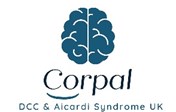Agenesis of the Corpus Callosum (ACC) is a rare neurological condition in which the Corpus Callosum, the major “pathway“ for information which links the two hemispheres of the brain, fails to develop fully. The condition is usually diagnosed by CT (Computer Tomographic) or MRI (Magnetic Resonance Imaging) scan.
The effects of the condition are variable; ranging from normal development (where the condition may be undetected or be revealed incidentally), through mild developmental delay to severe learning difficulties, epilepsy, visual impairment and delayed motor development. There may be other brain malformations present, for example microcephaly (small brain) or hydrocephalus (obstruction of the flow of fluid in the head).
Common characteristics
The features below are based on observations of a number of individuals with ACC of varying intellectual level. Therefore this information may not be applicable to everyone. The problems that family, friends or teachers notice can change or become more apparent later in childhood. The presence of seizures or other changes in the brain structure, such as cysts or cerebellar abnormalities, may alter an individual’s abilities. If an individual has a specific diagnosis, such as Aicardi syndrome, then it may be more appropriate to look at the characteristics of other individuals with the same condition.
- Delay in achieving motor, language, and cognitive milestones
- Poor motor coordination (movement e.g. walking or throwing a ball)
- Increased sensitivity to stimulation such as food textures and touch
- High tolerance to pain
- Difficulty with complex tasks, such as using language in social situations, complex reasoning, creativity, and problem solving
- Limited sophistication of humour
- Difficulty imagining the potential consequences of behaviour
- Immature play for age
- Problems in social situations such as making inappropriate comments
- A lack of awareness of the thoughts and feelings of others
- Difficulty starting conversations and keeping conversation flowing
- Difficulty identifying what a speaker is feeling from their tone of voice or facial expressions
- Difficulty distinguishing between lies and sarcasm
- Difficulty in relationships with others, such as emotional give and take
- Limited insight into their own behaviour
Who can help?
Once a person has received a diagnosis the help available will be dependent on their age and level of development and learning. However, many therapies and supports may help individuals with ACC and other disorders of the corpus callosum lead more successful lives.
Changes in the corpus callosum are often diagnosed during childhood because of concerns about development, speech, or other problems such as seizures. It is likely that your child will have had a number of investigations as well as the brain scan such as blood and urine samples. This is often a time where there are a number of appointments with different professionals, including an ophthalmologist (eye specialist), endocrinologist (hormone specialist) and clinical geneticist for their opinions. This can be a frustrating time as it can feel that no-one knows what is wrong with your child.
School -
Children who have a diagnosis before they start school will already be involved with a Paediatrician and possibly a Child Development Team. Your paediatrician will know whether your child is likely to need any extra support when they start school and, with your permission, will inform the Education Department so they can gather information from everyone involved with your child and make sure they have the right support from the very beginning of their school life.
Some children will have already started at school by the time the diagnosis is made and you may or may not be aware of difficulties they are experiencing. You may find it useful to arrange to talk to your child’s teachers to explain the changes that have been found and discuss your child’s progress in more detail. It is unlikely that any of your child’s teachers will have heard of callosal abnormalities or had experience of dealing with children with the condition so your Paediatrician will be able to give you some information to show to the school. Your child may require extra help at school and it is best to talk to your child’s teachers and the SENCO (Special Educational Needs Coordinator – each school has a teacher who has had additional training with children who need support) about what help they may need and how this may be provided.
More information can be found on the Corpal Website (opens link in new window)

